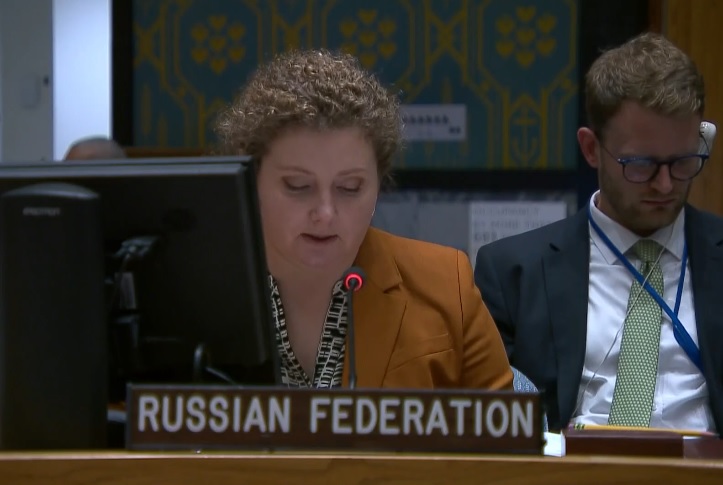Statement by Deputy Permanent Representative Anna Evstigneeva at UNSC briefing on the situation in the Democratic Republic of the Congo
Mr.President,
We thank SRSG B.Keita for the briefing. We closely followed the remarks by Mr. Emery M. Mudinga. We thank the Ambassador of Gabon for reporting on the activities of Committee 1533. We welcome Permanent Representatives of the Democratic Republic of the Congo, Burundi, and Rwanda to this meeting.
Like all our colleagues in the Security Council, we follow the developments in eastern DRC with concern. Regretfully, despite the state of emergency that has been effective in Ituri and North Kivu since May 2021, the joint military operation by the armed forces of the DRC and Uganda, as well as MONUSCO's peacekeeping efforts, the situation in the east of the DRC would not change.
At the moment, there is certain stagnancy characterized by the absence of large-scale hostilities – between M23 group and governmental troops in the first place. At the same time, numerous illegal armed formations that are active in eastern DRC continue to terrorize the local population. Besides, they confront each other trying to win control over DRC’s natural resources and use the proceeds of illegal exploitation of those resources in order to finance their illicit activities and build up combat capacity. Attacks by the militants kill dozens of Congolese people monthly, displace thousands of men, women, children, and elderly, turn them into refugees, and worsen the humanitarian situation.
The escalation of tension between the local population and peacekeepers became yet another challenge recently. We strongly condemn the attacks of protestors on MONUSCO facilities in North Kivu at the end of July this year, which claimed lives and injured both local residents and the Blue Helmets. We do not doubt that the DRC authorities will carry out a comprehensive investigation of those incidents and take all the necessary measures.
It is important that we do our best to make sure that all problems are addressed in a non-violent way. In order to achieve this, we need to enhance coordination and communication of MONUSCO and DRC’s official bodies.
As for implementing the joint transition plan, step-by-step drawdown of the mission and its complete withdrawal by 2024, we believe we should proceed from the developments on the ground, adopt a phased and responsible approach.
The events that took place in the DRC this summer confirmed that bringing peace and stability to the region by political means remains a priority. To make this happen, we need to ensure a comprehensive ceasefire and create conditions for a constructive dialogue in the interests of lasting stabilization.
We believe constructive interaction at the regional level is key to resolving the existing security problems. In this regard, we welcome the commitment of DRC’s neighbor states to overcoming tension in the east and launching new settlement mechanisms in the Great Lakes Region. We appreciate the mediator efforts of President of Angola J. Lourenço. We closely monitor the Nairobi process that started in April this year, and welcome the critical decisions, i.a establishment of the Joint Forces, made by regional states at consultations in Kenya’s capital. Those decisions need to be implemented given support of the global community, in close coordination with MONUSCO and under the leading role of Kinshasa.
At the same time, we believe it important to set forth efforts to fully implement the fundamental 2013 Peace, Security, and Cooperation Framework for the DRC and the Great Lakes Region.
Once again, we reiterate our principled support for the efforts of MONUSCO, its leadership and its peacekeepers, as well as the activity of Secretary-General’s Special Envoy for GLR Huang Xia. We do hope that when acting jointly with the peacekeeping mission and regional partners, the Congolese will be able to implement the long overdue measures that should address the root causes of unrest in the east of the country. Normalization of the security situation is essential for improving the humanitarian aspects, ensuring sustainable socio-economic development, expanding integrative processes. It also appears important in light of the preparations for pending presidential elections at the end of 2023.
To conclude, responsibility for the fate of their country will ultimately rest with the people of the DRC. They are the masters of their own future – the future of their families and their state.
We do not doubt that with the support and engagement of the international community, the Congolese will be able to surmount all difficulties and get back to peace and development.
Thank you
